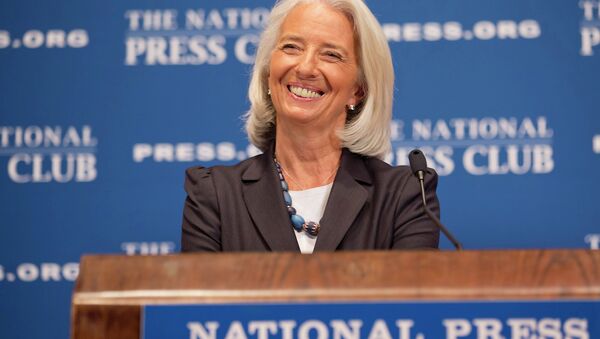According to analysis by the Centre for International Governance Innovation (CIGI), as Greece descended into a financial maelstrom in the spring of 2010, a small group of staffers at the International Monetary Fund (IMF) held top-secret talks with officials from the German and French finance ministries to discuss the idea of restructuring Greece's debt.
CIGI Senior Fellow and award-winning journalist, Paul Blustein says the idea considered in those secret talks would come to fruition only much later, in March 2012, when Greece received the largest debt relief in history.
IMF says #Greece now running primary deficit of nearly 1.5% of GDP; warns #eurogroup debt relief may be necessary http://t.co/qsM7aGUqWS
— Peter Spiegel (@SpiegelPeter) May 4, 2015
It turns out the early negotiations with the Troika were a disaster. Normally, when an IMF mission chief arrives in a country to negotiate a rescue program, he or she can start meeting with the country's top economic policy makers almost immediately upon landing in the capital.
However, for the Greek crisis of 2010, the IMF had to reach a common position with representatives from the European Commission and the ECB before negotiating with Greek officials — that was the condition set by European leaders for the Fund's inclusion.
"IMF should recognize its responsibility…and forgive" Greece's debt —Former IMF deputy: http://t.co/fQYTfTPiZU) pic.twitter.com/sNuAESzyk7
— Ian Talley (@IanTalley) April 21, 2015
Worse still, the terms and conditions of the bailout were most unusual for the IMF, as the Fund has a long history of lending alongside other official creditors, such as the World Bank and regional development banks, it has insisted on the understanding that it maintains final say. In the Greek case, it did not.
"This has the makings of a strange dog's breakfast," Morris Goldstein, a former deputy director of the IMF's research department, told the Financial Times.
"If a regional grouping can set IMF conditionality, what is the point of the Fund anyway? This could set a very dangerous precedent."
Euro: A "Terribly Flawed System of Monetary Union"
Paul Blustein concludes: "For the IMF to have been a junior partner in the Troika was a travesty. Even though the Fund was putting up a minority share of the funding for the Greek program, it should have had the clearly understood power to determine the terms and conditions. Indeed, the Fund's authority should have gone even further. It should have been able to set terms and conditions for the entire Eurozone.
IMF says #Greece’s debt unsustainable; EC slashes country’s growth forecasts. Are these not proof points for a restructuring of Greek debt?
— Mehran Khalili (@mkhalili) May 5, 2015
"It should have been on the opposite side of the negotiating table from the ECB, rather than the same side, and it should have had the power to require action from all of the member countries, not just the ones urgently in need of international assistance.
"The Fund was coming to the rescue not just of Greece, but of the euro; even the rich countries that never needed IMF money were, in many respects, supplicants, using the Fund to help save their terribly flawed system of monetary union."



